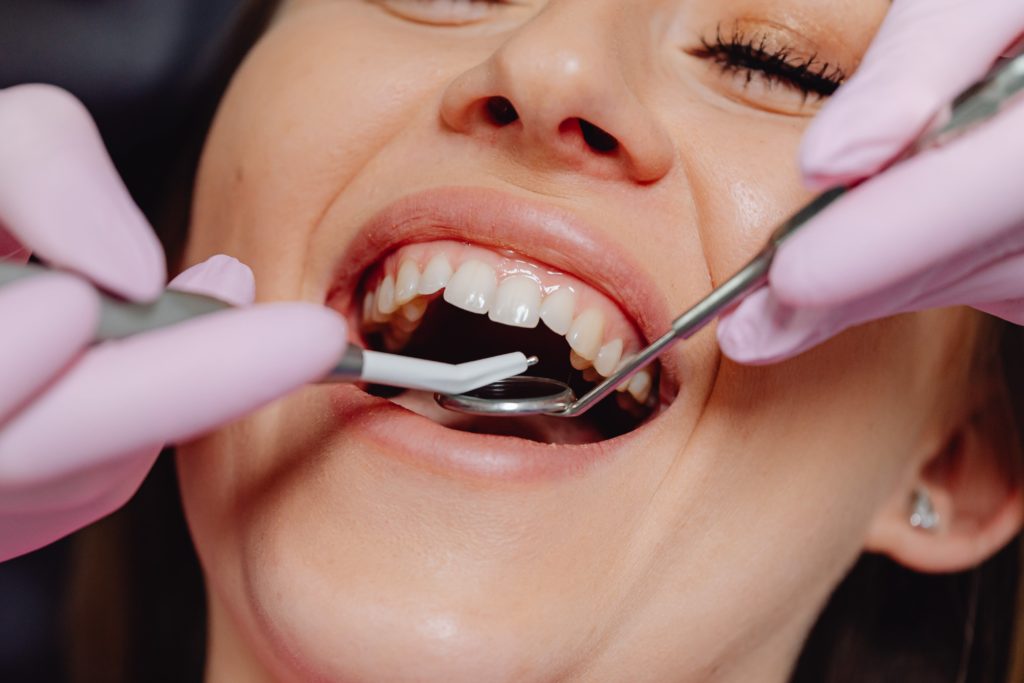
Periodontal disease, or gum disease, is inflammation of the gums that can lead to a breakdown of the gums, teeth, and bone. Heart disease is caused by the blockage of blood vessels that leads to conditions such as heart attack or stroke.
These, of course, sound like very different conditions. But recently, many researchers have begun to hone in on how these two might be related.
Is there a link between gum disease and heart disease?
There have been multiple studies that have shown a link between gum disease and heart disease. For example, in 2014, researchers found that people who received good care for their gum disease had up to 40% lower cardiovascular care costs than people who didn’t get adequate care for their gum disease.
A review article that looked at the results of multiple studies found that people with gum disease had about a 20% higher risk for heart disease, although more research is needed.
Another study by the Centers for Disease Control and Prevention found that almost half of adults older than 30 and 70% of adults age 65 and older have some level of gum disease. So, this link could affect many people.
Because of these studies, the American Dental Association and the American Heart Association have both acknowledged the link between periodontal and heart disease.
Why is there a link between gum disease and heart disease?
Researchers have long known that inflammation leads to atherosclerosis (hardened arteries) which makes it harder for blood to flow to your heart, thus increasing the risk of heart attacks and strokes.
As we know, one of the signs of gum disease is inflammation. So, gum disease may increase the risk of heart disease because that inflammation allows bacteria to spread below the gum.
Other diseases connected to your oral health
Heart disease isn’t the only condition that is connected to your oral health. For example:
- There is research that suggests that lower bone density (Osteoporosis) can lead to bone loss in the jaw. This can even lead to tooth loss because the bone is weaker.
- Bacteria in the mouth caused by gum disease can also move to the lungs, which can lead to pneumonia.
- Gum disease may also increase the risk of other cancers, like kidney, pancreatic, and blood cancer.
- There is some research, albeit in its early stages, that shows that there is a connection between gum disease and rheumatoid arthritis.
- Some research shows that people with diabetes have a greater risk of developing periodontal disease.
Gum disease symptoms
While the only way to know if you have gum disease is to visit your dentist, there are some signs that point to gum disease. These include:
- Swollen, red gums
- Gums that bleed easily
- Persistent bad breath
- Receding gums
- Loose teeth
- Changes in your bite
You may not have any of these symptoms, yet still have a degree of gum disease. However, if you do have any of these symptoms, visit your dentist so they can determine if you have gum disease.
Gum disease causes
There are many things that can contribute to developing gum disease, a major one being plaque. Some other causes of gum disease are:
- Hormonal changes, such as ones that occur during pregnancy, puberty, menopause, or menstruation
- Illnesses that affect the immune system, such as cancer or HIV
- Medications that may lower the flow of saliva, as saliva can protect your teeth and gums
- Inadequate dental care, such as not brushing, flossing, or having regular teeth cleanings
- Smoking
- A family history of dental disease
How to treat gum disease
There are nonsurgical and surgical treatments available for gum disease; however, treatment for gum disease depends on the stage of the disease, your overall health, and whether you’ve responded to earlier treatments. Nonsurgical treatments include scaling and root planing, which is a deep cleaning in which your plaque and tartar are scraped away from above and below your gum line and smoothing the rough spots on your tooth roots. They also include medications such as antibiotic gel, enzyme suppressant, or antiseptic chips. Surgical treatments include pocket reduction surgery, bone grafts, soft tissue grafts, bone surgery, and guided tissue regeneration.
The ultimate goal of gum disease treatment is to facilitate the reattachment of your gums to your teeth, reduce swelling, reduce the risk of infection, and prevent the disease from progressing.
How to prevent gum disease
Luckily, there are many habits you can develop that can help reduce the chances of developing gum disease and heart disease. Some of these include:
- Having good dental hygiene: Brush your teeth at least twice a day and floss once a day
- Getting a dental cleaning at least twice a year
- Using mouthwash regularly
- Eating a healthy diet that is high in vegetables and fiber and low in sugar
- Not smoking or chewing tobacco
- Maintaining a healthy blood sugar level
Visit Dr. Ruiz & Associates, Inc for a dentist in Burbank, CA
If you need a dentist in Burbank, CA, visit our office!
At our office, you will be provided with world-class dentistry. Dr. Ruiz is a renowned dentist, educator, and researcher who is known as a pioneer in supra-gingival minimally invasive dentistry, or “above the gums dentistry.” This is a healthier form of dentistry that protects soft oral tissues and produces long-lasting, beautiful results. And all of our staff are trained in these techniques.
Check out our Google reviews and call our office to make an appointment!




